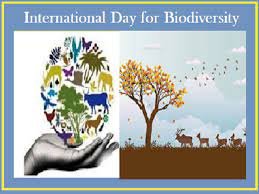Blog
May 24th Current Affairs
- May 24, 2021
- Posted by: admin
- Category: Culture Current Affairs Daily News Defense & Security Disaster Management Economy Education Environment & Ecology Ethics Geography Governance Health History International Relation Persons in News Polity Science & Technology Social Issues Sports Uncategorized UPSC Notification Videos
1. e-Courts Services Mobile App

IN NEWS:
Supreme Court’s E-Committee releases Manual for its free “e-Courts Services Mobile App” in 14 languages.
The manuals released in English and regional languages explain all features of app with screenshots for easy understanding for the common man.
KEY POINTS:
- The app is available in English, Hindi, Assamese, Bengali, Gujarathi, Kannada, Khasi, Malayalam, Marathi, Nepali, Odia, Punjabi, Tamil and Telugu.
- The “e-Courts Services Mobile app” aimed to benefit litigants, citizens, lawyers, law firms, police, government agencies and other institutional litigants has so far crossed 57 lakh downloads.
- The App which acts as a personalized digital case diary with case details available on handset at any hour of the day and free of cost.
- Dr Justice Dhananjaya Y Chandrachud, Judge, Supreme Court of India and the Chairperson of e-Committee, fore-worded the manual and stressed the importance of this free mobile app and highlighted the reach of this citizen-centric mobile app .
SOURCE:PIB
2.White flies:

IN NEWS:
Researchers have found that the host range of all of the invasive whiteflies was increasing due to their polyphagous nature (ability to feed on various kinds of food) and prolific breeding.
Key Points:
- Whiteflies are Hemipterans that typically feed on the undersides of plant leaves.
- They comprise the family Aleyrodidae, the only family in the superfamily Aleyrodoidea.
- In warm or tropical climates and especially in greenhouses, whiteflies present major problems in crop protection.
- These are one of the top ten devastating pests in the world that damage more than 2000 plant species and also function as vectors for some 200-plant viruses.
- Cotton is one of the worst hit crops by these.
- Also, Bt. cotton is not resistant against white flies.
- They were also found to expand their host range on valuable plants species, such as coconut, banana, mango, sapota, guava, cashew, oil palm, and ornamental plants and important medicinal plants.
- The whiteflies are difficult to control by using synthetic insecticides.
- Currently naturally occurring insect predators, parasitoids and entomopathogenic fungi (fungi that can kill insets) are being used.
SOURCE:TH
3.Yaas.

IN NEWS:
- Cyclone Yaas is likely to intensify into a “very severe cyclonic storm” and cross the Odisha and West Bengal coasts on May 26, the India Meteorological Department (IMD) said.
- A low pressure area formed over the east-central Bay of Bengal and the adjoining north Andaman Sea.
Key Points:
- Yaas, the cyclonic storm that is expected to hit the coasts of Odisha and West Bengal next week, has been named by Oman. Yaas refers to a tree that has a good fragrance and in English, the word is similar to Jasmine.
- Cyclone Tauktae, which was named by Myanmar, means “gecko” — a highly vocal lizard — in Burmese dialect.
Cyclones naming:
- In 2000, a group of nations called WMO/ESCAP (World Meteorological Organisation/United Nations Economic and Social Commission for Asia and the Pacific), which comprised Bangladesh, India, the Maldives, Myanmar, Oman, Pakistan, Sri Lanka and Thailand, decided to start naming cyclones in the region.
- After each country sent in suggestions, the WMO/ESCAP Panel on Tropical Cyclones (PTC) finalised the list. The list of 169 cyclone names released by IMD in April 2020 were provided by these countries — 13 suggestions from each of the 13 countries.
- The WMO/ESCAP expanded to include five more countries in 2018 — Iran, Qatar, Saudi Arabia, United Arab Emirates and Yemen.
Guidelines to adopt names of cyclones:
- While picking names for cyclones, here are some of the rules that countries need to follow. If these guidelines are following, the name is accepted by the panel on tropical cyclones (PTC) that finalises the selection:
- The proposed name should be neutral to (a) politics and political figures (b) religious believes, (c) cultures and (d) gender
- Name should be chosen in such a way that it does not hurt the sentiments of any group of population over the globe
- It should not be very rude and cruel in nature
- It should be short, easy to pronounce and should not be offensive to any member
- The maximum length of the name will be eight letters
- The proposed name should be provided with its pronunciation and voice over
- The names of tropical cyclones over the north Indian Ocean will not be repeated. Once used, it will cease to be used again. Thus, the name should be new.
SOURCE:PIB
4. One Stop Centre scheme (OSCs)

In news
- One Stop Centre Scheme (OSCs) was in news recently.
- It has provided assistance to over 3 lakh women so far.
- Implemented by: the Ministry of Women and Child Development
Key takeaways
- The scheme is implemented through State Governments/ Union Territory (UT) Administrations.
- Objective: To provide integrated support and assistance to women affected by violence and in distress, both in private and public spaces, under one roof and facilitate immediate, emergency and non-emergency access to a range of services including police, medical, legal aid and counseling, psychological support to fight against any forms of violence against women.
- Till date, 701 OSCs in 35 States/UTs have been operationalised.
SOURCE:IE
5. INTERNATIONAL DAY FOR BIOLOGICAL DIVERSITY (IDB)

IN NEWS:
International Biodiversity Day was observed on May 22, 2021.
KEY POINTS:
The International Day for Biological Diversity or World Biodiversity Day is a United Nations-sanctioned international day for the promotion of biodiversity issues.
It is held annually on May 22.
- The theme for 2021 is “We’re part of the solution.”
Important Informtion :
Why May 22?
- When first created by the Second Committee of the UN General Assembly in late 1993, 29 December (the date of entry into force of the Convention of Biological Diversity), was designated The International Day for Biological Diversity.
- In December 2000, the UN General Assembly adopted 22 May as IDB, to commemorate the adoption of the text of the Convention on 22 May 1992 by the Nairobi Final Act of the Conference for the Adoption of the Agreed Text of the Convention on Biological Diversity.
- This was partly done because it was difficult for many countries to plan and carry out suitable celebrations for the date of 29 December, given the number of holidays that coincide around that time of year.
SOURCE:IE
